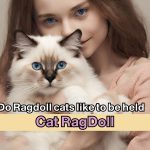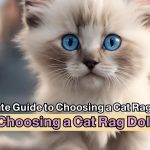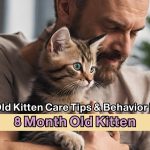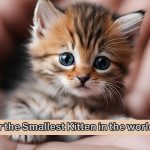Many cat owners have found themselves in a perplexing situation – their feline companion sneaking a few bites from their canine counterpart’s food bowl. But is it safe for cats to indulge in dog food?
In this article, we will explore the safety concerns and potential health implications of a cat consuming dog food. We’ll delve into the differences between feline and canine dietary needs and provide expert insights into pet nutrition habits.
So, if you’ve ever wondered whether your feline can safely enjoy a canine diet, or if it’s time to reevaluate your pet’s feeding habits, keep reading. The answers may surprise you!
Understanding Feline Dietary Needs
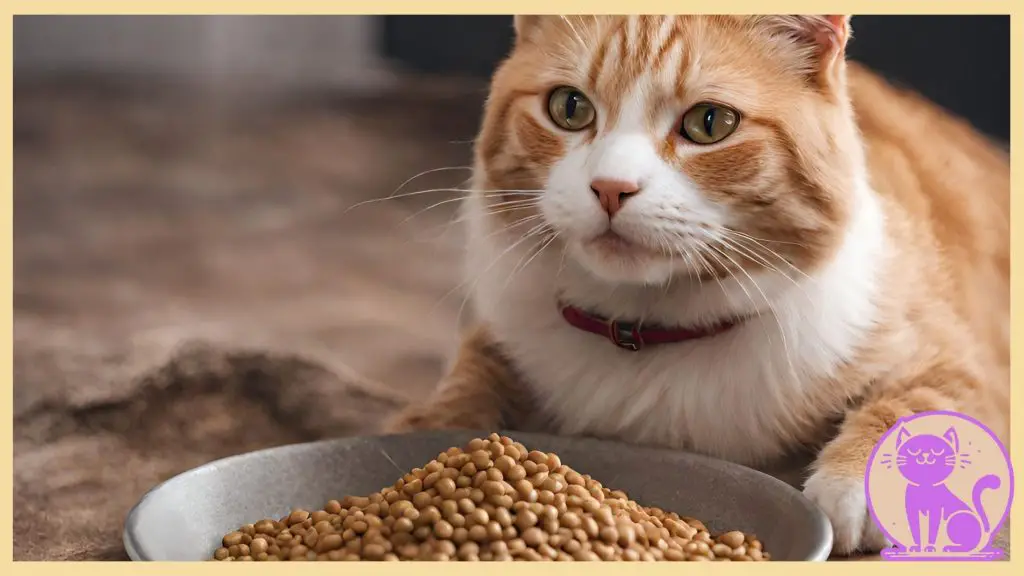
Before we delve into the safety concerns of a cat consuming dog food, it’s crucial to understand the unique nutritional requirements of cats. A proper feline diet plays a vital role in their overall health and well-being.
Key Nutrients for Cats
Cats are obligate carnivores, which means that they require specific nutrients that are found predominantly in animal-based protein sources. These key nutrients include:
- Protein: Cats need high levels of protein in their diet to support muscle development, maintain healthy skin and coat, and ensure proper immune function.
- Taurine: This amino acid is essential for cats as they can’t produce it in sufficient quantities themselves. Taurine is crucial for healthy heart function, vision, and reproductive health.
- Vitamin A: Cats require preformed vitamin A, which is found only in animal tissue, to support their immune system, vision, and healthy growth.
- Arachidonic Acid: Cats need arachidonic acid, a type of omega-6 fatty acid, for proper growth and development, as well as maintaining healthy skin and coat.
- Vitamin B12: Cats need vitamin B12, which is predominantly found in animal-based protein sources, for their metabolism and the production of red blood cells.
A balanced feline diet should include these essential nutrients to meet a cat’s unique nutritional needs.
The Importance of a Balanced Feline Diet
Feeding your kitten a balanced food is crucial for their overall health and longevity. A diet that meets their specific dietary needs helps maintain a healthy weight, supports proper digestion, boosts their immune system, and promotes optimal organ function.
Providing a mix of high-quality commercial cat food and occasional fresh, cooked, or raw meats can help ensure that your cat receives the necessary nutrients. However, it’s essential to consult with a veterinarian to determine the right balance and portion sizes for your cat’s specific needs.
Comparison of Key Nutrients in Cat and Dog Food
| Nutrient | Cat Food | Dog Food |
|---|---|---|
| Protein | High content of animal-based protein | Moderate content of animal-based protein |
| Taurine | Essential nutrient for cats | Not as crucial for dogs |
| Vitamin A | Preformed vitamin A is necessary for cats | Can convert beta-carotene into vitamin A |
| Arachidonic Acid | Required for cats | Synthesized by dogs |
| Vitamin B12 | Crucial for cats | Essential for dogs |
Note: The nutrient composition may vary between different cat and dog food brands. Always check the labels and consult with a veterinarian for specific recommendations tailored to your cat’s needs.
Can Cats Eat Dog Food?
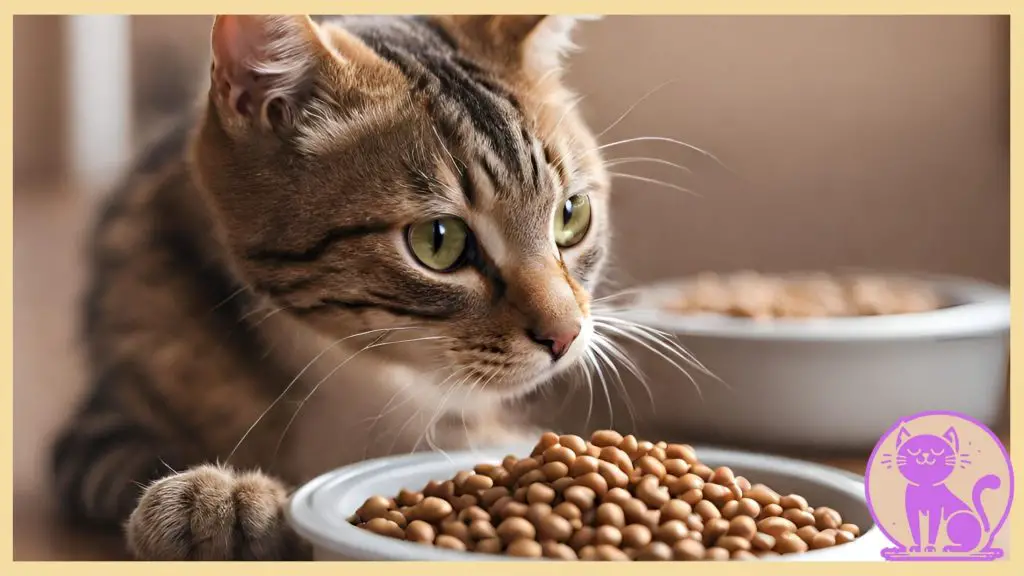
Many pet owners may wonder if it’s safe for cats to consume dog food. While cats and dogs may share a similar appearance, their dietary needs differ significantly. Feeding a cat a diet primarily formulated for canines can pose potential risks to their health.
Kittens have unique nutritional requirements that differ from those of pupies. They are obligate carnivores, meaning they require a diet rich in animal-based protein, taurine, and other essential nutrients. Dog food formulations may not provide adequate amounts of these vital nutrients that cats need to thrive.
Feeding a cat dog food on occasion is unlikely to cause immediate harm. However, **regularly** feeding cats a canine diet can lead to nutrient deficiencies and digestive issues over time. Cats may not receive enough taurine, which is crucial for their heart health and vision. Additionally, dog food may lack the necessary levels of arachidonic acid, an essential fatty acid for feline well-being.
Furthermore, dog food often contains higher levels of carbohydrates, which cats are not designed to digest efficiently. Over time, excessive carbohydrate consumption may lead to obesity, diabetes, and other obesity-related health conditions in cats.
Canine vs Feline Dietary Needs
When considering the differences between feline and canine dietary needs, it’s important to note that **they are not interchangeable**. While both cats and dogs require protein, fat, carbohydrates, vitamins, and minerals, the quantities and sources of these nutrients vary significantly.
Cats require a higher amount of animal protein compared to dogs. They cannot effectively synthesize certain amino acids, making it imperative that they consume adequate amounts of high-quality protein from animal sources. On the other hand, dogs can tolerate a more diverse range of protein sources, including plant-based proteins.
Feline diets also need to include taurine, an essential amino acid that is naturally found in animal tissues. Taurine plays a crucial role in maintaining heart and eye health in cats. Dog food formulations may not provide sufficient levels of taurine for cats.
Furthermore, cats require a dietary source of arachidonic acid, a type of omega-6 fatty acid. This essential fatty acid is found predominantly in animal tissues and is an important component of the feline diet. Dog food may not contain adequate levels of arachidonic acid for cats.
In conclusion, while cats may be curious about dog food, it is essential to provide them with a diet specifically formulated to meet their unique nutritional needs. Feeding cats a diet primarily designed for canines can lead to potential health risks and nutrient deficiencies. To ensure your cat’s well-being, it’s best to consult with a veterinarian and provide them with a balanced, species-appropriate feline diet.
The Risks of Cats Consuming Dog Food
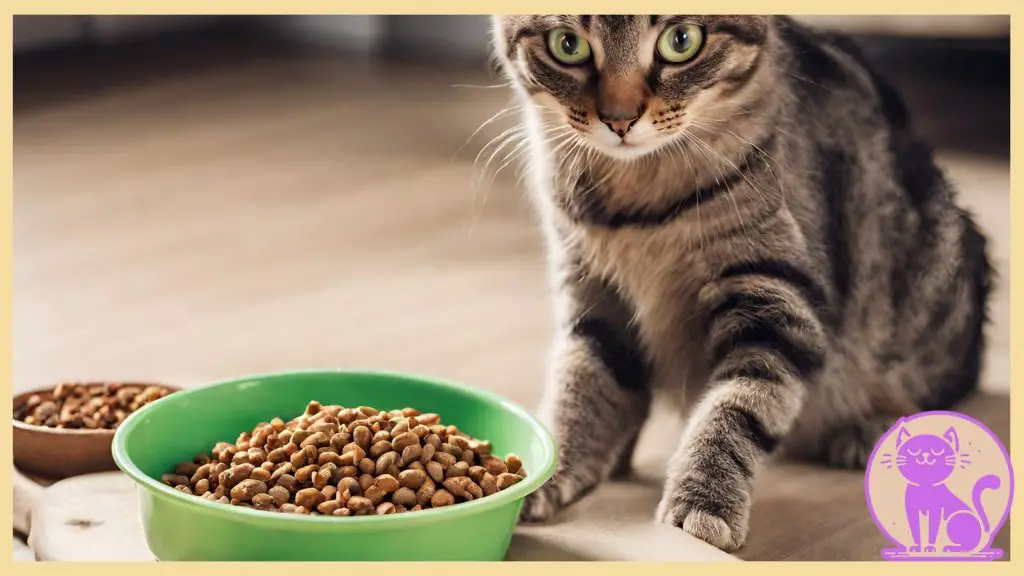
When a cat consumes dog food, it can expose them to various risks and potential health issues. Although cats and dogs are both domesticated animals, their nutritional needs differ significantly. Dogs are omnivorous, while cats are obligate carnivores, meaning they require a diet primarily consisting of animal-based proteins and fats. Feeding a cat dog food as a regular part of their diet can lead to several complications.
Potential Digestive Issues
One of the primary risks of cats consuming dog food is the potential for digestive issues. Cat’s digestive systems are not designed to efficiently process and break down the specific nutrients found in dog food. The difference in the composition of proteins, fats, and carbohydrates in dog food can put a strain on a cat’s digestive system, leading to uncomfortable symptoms like diarrhea, vomiting, and gastrointestinal upset.
Nutrient Deficiencies
Cats have unique dietary requirements that are distinct from those of dogs. They require specific nutrients like taurine, arginine, and arachidonic acid, which are essential for their overall health and wellbeing. These nutrients are primarily found in animal tissues and are crucial for various bodily functions in cats. However, dog food formulations may not provide adequate amounts of these essential nutrients, potentially resulting in nutrient deficiencies in cats.
Long-Term Health Implications for Felines
Regular consumption of dog food by cats can have long-term health implications. Nutritional imbalances and deficiencies can weaken a cat’s immune system, making them more susceptible to infections and diseases. Over time, these deficiencies can lead to serious health problems, such as urinary tract issues, heart complications, and even organ failure.
It’s important to note that occasional, accidental ingestion of small amounts of dog food is unlikely to cause immediate harm to a cat. However, repetitive exposure and feeding a cat dog food as a significant component of their diet can have detrimental effects on their health and overall wellbeing.
Providing cats with a balanced and appropriate feline diet is key to ensuring their optimal health and longevity.
| Risks of Cats Consuming Dog Food |
|---|
| Potential Digestive Issues |
| Nutrient Deficiencies |
| Long-Term Health Implications for Felines |
Nutritional Differences Between Cat and Dog Food
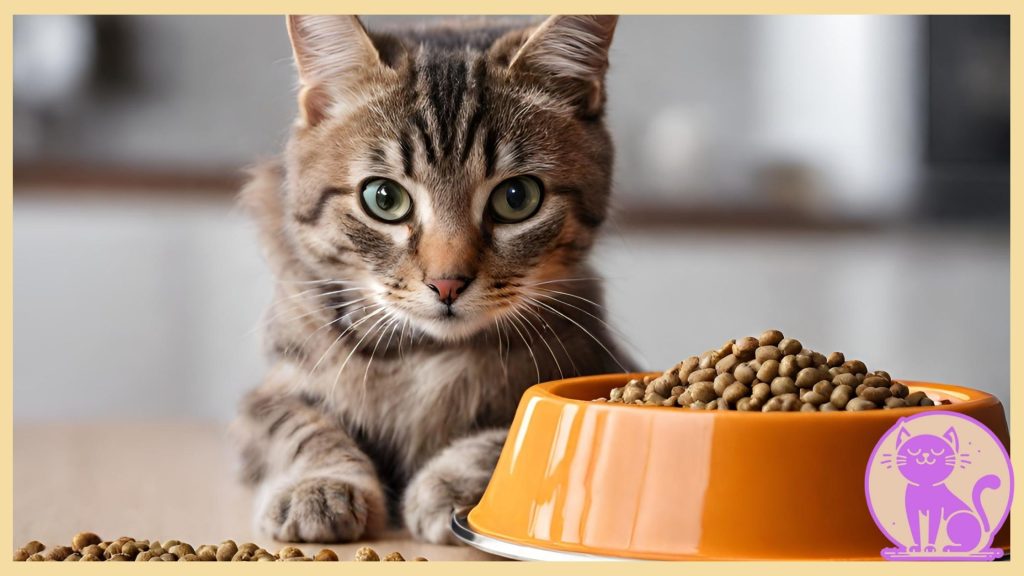
When it comes to the nutritional needs of our furry companions, cats and dogs have distinct requirements. While both are carnivores, cats have specific dietary needs that differ from those of dogs. This section will delve into the unique nutritional profiles of cat and dog food, highlighting the specific nutrients that are essential for cats but may be lacking in dog food formulations.
Cat Nutrition
Domesticated felines are obligate carnivores, meaning they require a diet primarily consisting of animal protein. Cats need essential amino acids, such as taurine and arginine, which are important for their overall health and wellbeing. Unlike dogs, cats cannot synthesize these amino acids in sufficient quantities.
Dog Nutrition
While dogs are also carnivores, they can tolerate a more varied diet compared to their feline counterparts. Dogs can adapt to different sources of protein and can thrive on a mix of animal and plant-based ingredients. They have a higher tolerance for carbohydrates, which can provide them with energy.
| Nutrient | Cat Food | Dog Food |
|---|---|---|
| Taurine | Essential for cats to prevent heart and eye problems. | Considered non-essential for dogs as they can produce taurine naturally. |
| Arginine | Needed for cats in regulating ammonia in their bodies; deficiency can lead to toxic buildup. | Required for dogs as well, but they can synthesize it in sufficient amounts. |
| Vitamin A | Crucial for cats’ vision and growth; deficiency can lead to issues like night blindness. | Dogs require vitamin A but can tolerate lower levels without adverse effects. |
| Vitamin D | Essential for cat bone health; deficiency can lead to metabolic and skeletal problems. | Dogs also need vitamin D, but they can convert it through the skin from sun exposure. |
The Importance of a Balanced Feline Diet
Ensuring that cats receive a balanced and species-appropriate diet is crucial for their overall health and longevity. Meeting their specific nutritional needs is essential in preventing nutrient deficiencies and associated health problems. While cat food is formulated to address these requirements, dog food may not provide the necessary nutrients in the correct proportions for feline consumption.
Consulting with a veterinarian is recommended for guidance on choosing a high-quality cat food that meets your pet’s nutritional needs. Always remember that the foundation of a healthy diet for cats is a specialized feline diet that provides the essential nutrients they require for optimal health.
Behavioral Factors in Pet Feeding
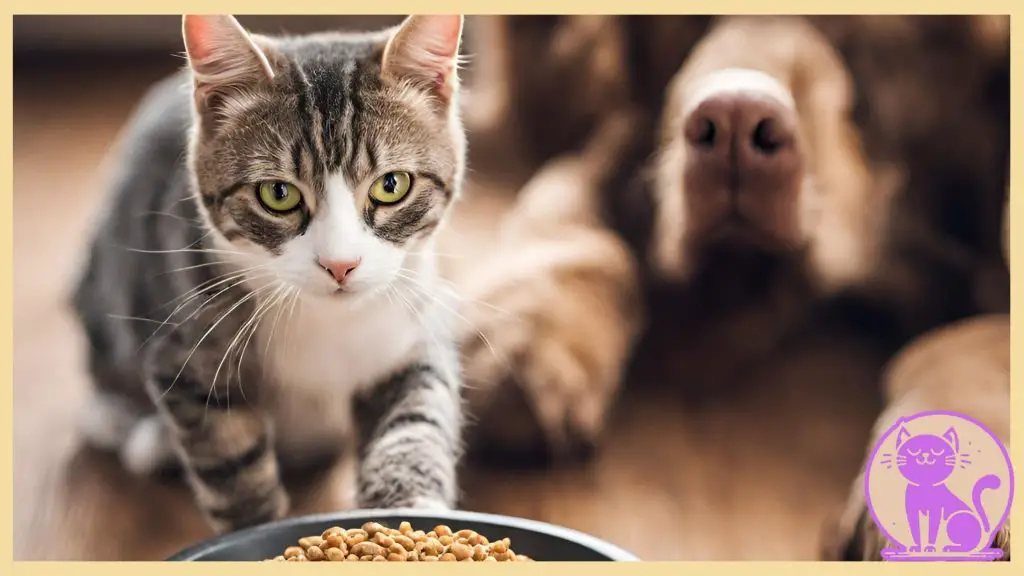
When it comes to pet nutrition habits, understanding the household pet feeding behavior is crucial. While dogs and cats have different dietary needs, they often share the same space, which can lead to certain behavioral factors that may affect their eating habits.
One common factor is sharing food bowls with dogs. Cats are known to be curious creatures, and they may be tempted to try the food their dog companions are eating. However, it’s important to note that dog food is formulated specifically for canines and may not provide the essential nutrients that cats need for optimal health.
Another behavioral factor is snacking on leftovers. Cats can be notorious scavengers, and if there are any leftover dog food scraps, they may indulge in them. This can become a habit if not addressed, potentially leading to nutritional imbalances in their diet.
To prevent these behaviors and ensure that your feline friend is getting the right nutrition, here are some practical tips:
- Establish separate feeding areas: Create separate feeding stations for your cat and dog to prevent them from accessing each other’s food. This helps maintain the integrity of their respective diets.
- Monitor feeding times: Keep an eye on your pets during meal times to prevent them from stealing each other’s food. Supervision can help curb this behavior and reinforce their individual feeding routines.
- Feed appropriate portions: Ensure that both your cat and dog are getting the right amount of food based on their individual nutritional needs. Overfeeding can not only lead to obesity but may also exacerbate the temptation to eat each other’s food.
- Utilize interactive feeding toys: Engage your pets in interactive feeding activities that provide mental stimulation and slow down their eating pace. This can reduce the chances of one pet finishing its meal quickly and then moving on to the other’s food.
Comparison of Pet Feeding Behaviors
| Pet Feeding Behavior | Impact on Nutrition |
|---|---|
| Dog Eating Cat Food | Potential for excessive protein and fat intake, leading to weight gain and digestive issues in dogs. |
| Cat Eating Dog Food | Lack of essential nutrients like taurine and arachidonic acid, which are crucial for a cat’s overall health. |
| Sharing Food Bowls | Potential for nutrient imbalances and improper portion control, affecting both dogs and cats. |
| Feeding on Leftovers | May result in inadequate nutrition and potential nutrient deficiencies, especially for cats. |
By addressing these behavioral factors and implementing preventive measures, you can ensure that your pets are receiving the proper nutrition they need. Remember to consult with a veterinarian for personalized advice based on your pets’ specific dietary requirements and to maintain their overall well-being.
Potential Health Consequences for Cats
Regular consumption of dog food by cats can lead to various health consequences. It’s important for cat owners to understand that felines have specific nutritional needs that differ from canines. Feeding a cat a diet primarily designed for dogs can result in imbalances and deficiencies, potentially causing issues such as:
1. Obesity
Cat eating dog food may lead to weight gain and obesity. Canine diets often contain higher levels of carbohydrates and calories, which can contribute to unhealthy weight gain in cats. Obesity can increase the risk of several health problems, including diabetes, arthritis, and heart disease.
2. Urinary Tract Conditions
The consumption of dog food by cats can disrupt the pH balance of their urinary tract. Felines require a specific acidity level to maintain optimal urinary health. The imbalanced nutrients in dog food may cause the formation of crystals or stones in the urinary tract, leading to uncomfortable conditions like urinary tract infections or blockages.
3. Skin Problems
The inadequate nutrients in dog food may not meet the unique needs of a cat’s skin and coat. Cats require specific fatty acids, such as omega-3 and omega-6, for healthy skin and a shiny coat. A deficiency in these essential fatty acids can result in dry, flaky skin, excessive shedding, and a dull coat.
To ensure the overall well-being and health of your feline friend, it is crucial to provide them with a nutritionally balanced diet specifically formulated for cats. This diet should meet their specific needs for protein, taurine, vitamins, and minerals.
How to Prevent Cat from Eating Dog Food
Ensuring that your cat sticks to a proper diet is essential for their overall health and well-being. Here are some effective strategies to prevent your cat from consuming dog food:
1. Establish Regular Feeding Schedules
Cats thrive on routine, so establish a consistent feeding schedule for your feline companion. Feed them at the same time each day and remove any uneaten food promptly. This will help prevent your cat from seeking alternative food sources, such as dog food.
2. Separate Cat and Dog Meals
Create separate feeding areas for your cat and dog to avoid any food mix-ups. Cats have their own specific nutritional needs, so it’s important to feed them specially formulated cat food rather than dog food. Keep their meals and feeding areas distinct to prevent your cat from consuming dog kibble.
3. Supervise Meal Times
If you have both a cat and a dog, make sure to supervise their meal times. Keep your cat’s food out of reach from your dog by placing it in an elevated area or using pet gates to separate their feeding spaces. This way, you can ensure that your cat only eats their designated food.
4. Use Puzzle Feeders or Slow Feeders
Consider using puzzle feeders or slow feeding bowls for your cat. These interactive food dispensers make mealtime more engaging for your feline companion and promote slower eating. This can help prevent them from finishing their meal quickly and then trying to eat the dog’s food.
5. Provide Proper Stimulation and Enrichment
Make sure your cat is adequately stimulated and enriched to reduce their interest in seeking out dog food. Provide toys, scratching posts, and interactive play sessions to keep them mentally and physically engaged. A stimulated cat is less likely to develop habits of consuming dog food.
6. Store Pet Food Properly
Store your cat and dog food in separate, secure containers to prevent any accidental access. Cats have a keen sense of smell and may be attracted to the scent of dog food if it’s left unattended. Opt for airtight containers to maintain the freshness of both pet foods and avoid any mix-ups.
By implementing these strategies, you can effectively prevent your cat from eating dog food and ensure that they receive the proper nutrition they need for a healthy life.
| Prevention Strategies | Effectiveness |
|---|---|
| Establishing regular feeding schedules | Highly effective |
| Separating cat and dog meals | Very effective |
| Supervising meal times | Effective |
| Using puzzle feeders or slow feeders | Moderately effective |
| Providing proper stimulation and enrichment | Moderately effective |
| Storing pet food properly | Highly effective |
Transitioning a Cat Back to a Proper Diet
If your feline companion has been consuming dog food regularly, it’s crucial to transition them back to a proper feline diet for their optimal health and well-being. The process should be gradual to avoid any digestive disturbances or sudden changes in their nutritional intake. Here are the steps you can follow to ensure a smooth transition:
- Consult Your Veterinarian: Before making any dietary changes, it’s essential to consult with your veterinarian. They can assess your cat’s specific needs and provide personalized guidance on transitioning their diet.
- Choose the Right Cat Food: Select a high-quality cat food that is specifically formulated to meet feline nutritional requirements. Look for options that are rich in essential nutrients like protein, taurine, and fatty acids.
- Introduce Cat Food Gradually: Start by mixing a small amount of the new cat food with the remaining dog food. Increase the proportion of cat food gradually over several days or weeks, monitoring your cat’s acceptance and response.
- Monitor Your Cat’s Health: Throughout the transition process, closely monitor your cat’s overall health and well-being. Keep an eye out for any signs of digestive upset, such as vomiting or diarrhea, and consult your veterinarian if any issues arise.
- Stick to a Feeding Schedule: Establish a consistent feeding schedule for your cat and avoid leaving food out for prolonged periods. This helps regulate their eating habits and prevents overconsumption.
By following these steps and being patient during the transition, you can help your cat adjust to a proper feline diet and ensure their long-term nutritional needs are met.
Consult Your Veterinarian for Expert Advice
When it comes to your cat’s dietary needs, it is always best to seek expert advice from a qualified veterinarian. While there is a significant amount of information available online, every cat is unique, and their nutritional requirements may vary.
Your veterinarian is a trusted source of knowledge and can provide personalized guidance based on your cat’s specific needs, age, breed, and overall health. They have the expertise to assess your feline companion’s dietary requirements and recommend the most suitable diet to ensure their optimal well-being.
By consulting your veterinarian, you can address any concerns or questions you have about your cat eating dog food or consuming a feline consuming canine diet. They can evaluate the potential risks and advise you on the appropriate steps to take to ensure your cat receives a balanced and nutritious diet.
Furthermore, your veterinarian can provide insights into pet nutrition habits and help you establish a feeding routine that promotes healthy eating habits for your feline friend. Regular check-ups with your veterinarian allow them to monitor your cat’s overall health, identify any potential nutritional deficiencies or imbalances, and make appropriate dietary adjustments when necessary.
Remember, your cat’s well-being depends on adequate nutrition, and seeking professional guidance is crucial to meet their specific dietary requirements. Consult with your veterinarian to provide your cat with the best possible nutrition and ensure their long-term health.
Taking Care of Your Feline’s Nutritional Needs
Ensuring that your cat receives the proper nutrition is essential for their overall health and well-being. By understanding their dietary requirements and incorporating healthy habits, you can support their optimal nutrition and prevent potential health issues.
Selecting Appropriate Cat Food
When choosing cat food, it is important to select products specifically formulated for feline consumption. Look for options that meet the standards set by reputable organizations such as the Association of American Feed Control Officials (AAFCO). These standards ensure that the cat food provides the necessary nutrients to support your cat’s growth and development. Additionally, consult with your veterinarian to determine if any specific dietary considerations are relevant for your cat’s individual needs.
Incorporating Variety
Variety in your cat’s diet can help ensure they receive a diverse range of nutrients. Consider incorporating different flavors and textures of cat food to provide a well-rounded feeding experience. However, it is important to introduce new foods gradually to prevent any digestive issues. Consult with your veterinarian for guidance on introducing new foods and finding the right balance of variety for your cat.
Maintaining a Healthy Feeding Routine
Establishing a regular feeding routine contributes to your cat’s overall nutritional well-being. Feed your cat at the same time each day to provide consistency and prevent overeating or undereating. It is recommended to divide their daily food intake into multiple small meals to mimic their natural eating habits. Avoid leaving food out all day, as it can lead to obesity and other health problems.
| Key Nutrients for a Healthy Feline Diet | Sources |
|---|---|
| Protein | Animal-based protein sources such as chicken, turkey, and fish |
| Taurine | Meat, particularly organ meat, and some commercial cat foods |
| Vitamin A | Liver, eggs, and certain fortified cat foods |
| Omega-3 Fatty Acids | Fish oil, flaxseed, and certain cat food formulations |
| Calcium | Dairy products, bone meal, and some cat food options |
Conclusion
In conclusion, it is important to recognize that while a cat eating dog food may not pose immediate harm, there are potential risks and long-term health implications to consider. Cats have unique dietary needs that differ from dogs, and a balanced feline diet is crucial for their overall well-being.
To ensure the nutritional health of your beloved cat, it is recommended to prioritize a proper feline diet. This means providing them with cat-specific food that meets their specific nutrient requirements. Consult with a qualified veterinarian for personalized advice tailored to your cat’s individual needs.
By taking proactive steps to address your cat’s nutritional needs, you can help prevent potential issues such as nutrient deficiencies, digestive problems, and other health complications that may arise from consuming dog food. Remember, a healthy and well-nourished cat is a happy and thriving pet!
FAQ
Q: Is it safe for a cat to eat dog food?
A: Cats should not regularly consume dog food as their nutritional needs differ. While an occasional small amount may not harm them, a long-term diet of dog food can lead to health problems.
Q: What are the dietary needs of a cat?
A: Cats require specific nutrients such as taurine, vitamin A, and arachidonic acid. These nutrients are essential for their overall health and well-being.
Q: Can cats eat dog food without any risks?
A: Cats can consume dog food occasionally, but it is not ideal for their long-term health. Dog food lacks key nutrients that cats need, which can lead to nutritional deficiencies over time.
Q: What are the risks of cats eating dog food?
A: Cats that regularly consume dog food may experience digestive issues, nutrient deficiencies, and potential long-term health implications, such as urinary tract problems or skin conditions.
Q: How does cat food differ from dog food nutritionally?
A: Cat food is formulated specifically for feline dietary needs, while dog food is designed for canines. Cat food contains the necessary nutrients that cats require, such as higher levels of protein and certain vitamins and minerals.
Q: What can lead a cat to eat dog food?
A: Cats may eat dog food if they share food bowls with dogs, scavenge for food, or accidentally consume it. It’s essential to supervise feeding and prevent access to dog food to avoid this behavior.
Q: How do I transition my cat back to a proper diet?
A: To transition a cat back to a proper feline diet, slowly introduce cat food while reducing the amount of dog food. Gradually increase the ratio of cat food to ensure a smooth transition.
Q: Should I consult a veterinarian for advice on my cat’s diet?
A: Yes, consulting a veterinarian is always recommended. They can provide personalized advice based on your cat’s specific needs and ensure they receive the necessary nutrients through a balanced diet.
Q: How can I take care of my cat’s nutritional needs?
A: Take care of your cat’s nutritional needs by selecting appropriate cat food, providing variety in their diet, maintaining a consistent feeding routine, and monitoring their overall health and weight.


